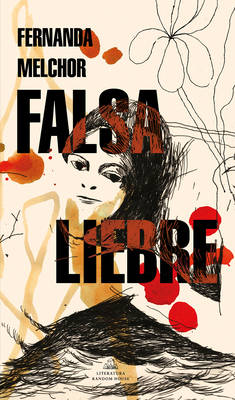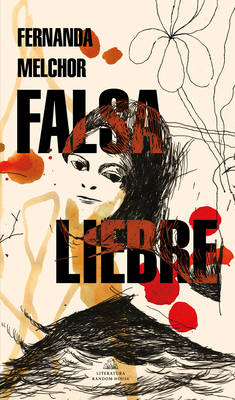
- Afhalen na 1 uur in een winkel met voorraad
- Gratis thuislevering in België vanaf € 30
- Ruim aanbod met 7 miljoen producten
- Afhalen na 1 uur in een winkel met voorraad
- Gratis thuislevering in België vanaf € 30
- Ruim aanbod met 7 miljoen producten
Omschrijving
Falsa liebre es una historia que fascina y horroriza, de la que es difícil apartarse por el ritmo de la prosa, capaz también de trazar a profundidad personajes al límite, que experimentan la violencia y el abandono.
Esta es la primera novela de Fernanda Melchor, quien ha conquistado un lugar importante en las letras hispanoamericanas. La oscuridad del puerto lo envuelve todo. Pachi y Vinicio se adentran en la playa, van camino a una fiesta improvisada; andan buscando con qué entumir el cuerpo, con qué acabar de borrarse. El verano ha sido largo y el día, mucho peor. No muy lejos de ahí, Zahir fantasea con su próximo viaje a la capital o al norte de México, fuera del alcance de la tía que le exige dinero, lo aplaca a golpes y que había orillado a su hermano pequeño, Andrik, a huir de la casa común para terminar en otra: la de un hombre que acaricia y pega con la misma mano. Ahora sólo debe convencer a Andrik de comenzar una nueva vida y asegurarse de encontrar la salida de esa playa que parece no tener fin. «Fernanda Melchor escribe con la intensidad de quien rescata un libro de un incendio para que arda en la imaginación.» --Juan Villoro ENGLISH DESCRIPTION False Hare is a fascinating and horrifying tale you just can't walk away from because of the rhythm of its prose, which also outlines intimate characters that live on the edge, experimenting violence and abandonment. This is Fernanda Melchor's first novel. She has already conquered a significant place in Hispanic-American literature. The darkness at the port engulfs everything. Pachi and Vinicio go deeper into the beach, approaching an improvised party. They are looking for something to numb their bodies, something to finally erase themselves. Summer has been long, and that day was much worse. Not far from there, Zahir fantasizes about his next travel to the capital city or the northern part of Mexico, away from the aunt who keeps asking him for money, controls him through physical violence, and has driven his little brother, Andrik, to run away from the family home and end up in another: a man's house, who caresses Andrik and then strikes him with the same hand. Now Zahir must not only convince Andrik to start a new life, but make sure they find a way out of that seemingly endless beach. «Fernanda Melchor writes with the same intensity of someone salvaging a book from a fire, so it may burn instead in our imagination.» --Juan Villoro
Esta es la primera novela de Fernanda Melchor, quien ha conquistado un lugar importante en las letras hispanoamericanas. La oscuridad del puerto lo envuelve todo. Pachi y Vinicio se adentran en la playa, van camino a una fiesta improvisada; andan buscando con qué entumir el cuerpo, con qué acabar de borrarse. El verano ha sido largo y el día, mucho peor. No muy lejos de ahí, Zahir fantasea con su próximo viaje a la capital o al norte de México, fuera del alcance de la tía que le exige dinero, lo aplaca a golpes y que había orillado a su hermano pequeño, Andrik, a huir de la casa común para terminar en otra: la de un hombre que acaricia y pega con la misma mano. Ahora sólo debe convencer a Andrik de comenzar una nueva vida y asegurarse de encontrar la salida de esa playa que parece no tener fin. «Fernanda Melchor escribe con la intensidad de quien rescata un libro de un incendio para que arda en la imaginación.» --Juan Villoro ENGLISH DESCRIPTION False Hare is a fascinating and horrifying tale you just can't walk away from because of the rhythm of its prose, which also outlines intimate characters that live on the edge, experimenting violence and abandonment. This is Fernanda Melchor's first novel. She has already conquered a significant place in Hispanic-American literature. The darkness at the port engulfs everything. Pachi and Vinicio go deeper into the beach, approaching an improvised party. They are looking for something to numb their bodies, something to finally erase themselves. Summer has been long, and that day was much worse. Not far from there, Zahir fantasizes about his next travel to the capital city or the northern part of Mexico, away from the aunt who keeps asking him for money, controls him through physical violence, and has driven his little brother, Andrik, to run away from the family home and end up in another: a man's house, who caresses Andrik and then strikes him with the same hand. Now Zahir must not only convince Andrik to start a new life, but make sure they find a way out of that seemingly endless beach. «Fernanda Melchor writes with the same intensity of someone salvaging a book from a fire, so it may burn instead in our imagination.» --Juan Villoro
Specificaties
Betrokkenen
- Auteur(s):
- Uitgeverij:
Inhoud
- Aantal bladzijden:
- 256
- Taal:
- Spaans
Eigenschappen
- Productcode (EAN):
- 9786073813228
- Verschijningsdatum:
- 23/08/2022
- Uitvoering:
- Paperback
- Formaat:
- Trade paperback (VS)
- Afmetingen:
- 137 mm x 230 mm
- Gewicht:
- 249 g

Alleen bij Standaard Boekhandel
+ 55 punten op je klantenkaart van Standaard Boekhandel
Beoordelingen
We publiceren alleen reviews die voldoen aan de voorwaarden voor reviews. Bekijk onze voorwaarden voor reviews.









